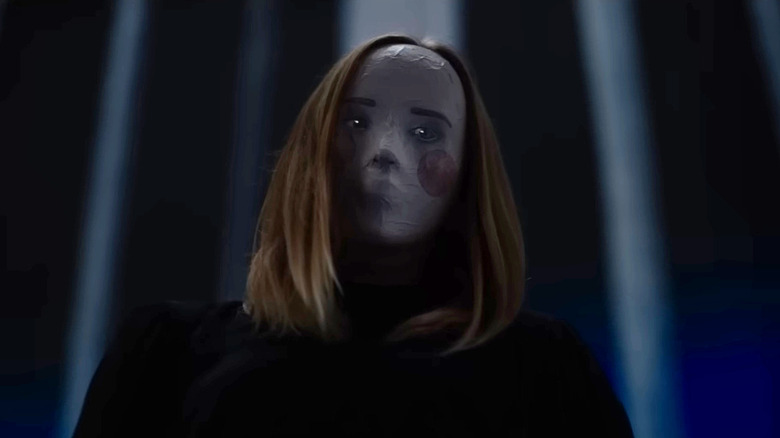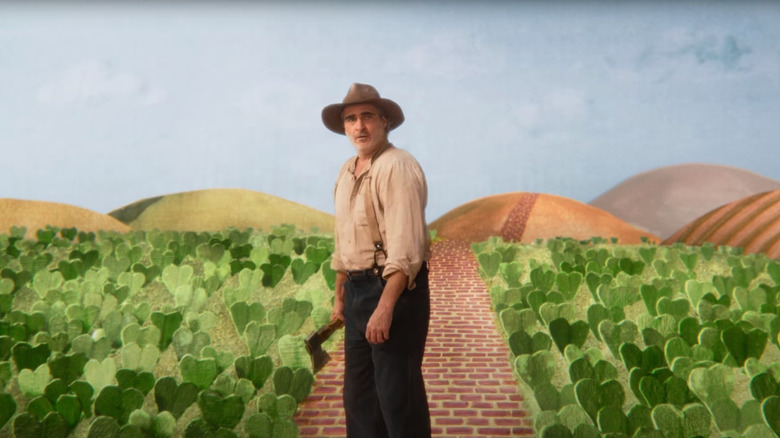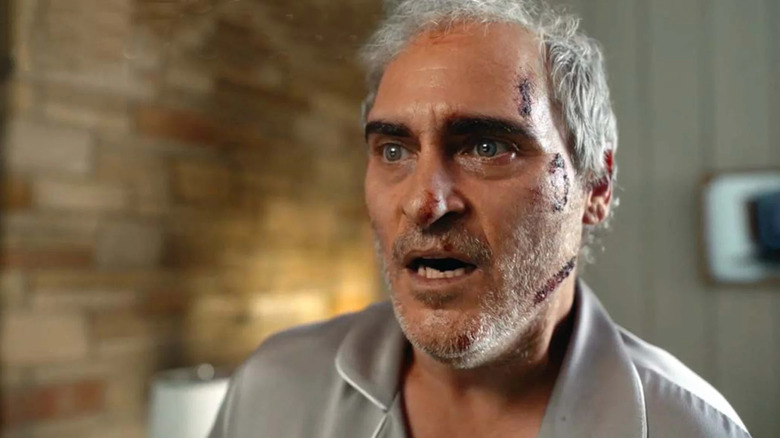Why Martin Scorsese Thinks Beau Is Afraid Will Age Like Stanley Kubrick's Barry Lyndon
When Stanley Kubrick's "Barry Lyndon" was first released in 1975, it wasn't terribly well-received by critics. According to an article in Telegraph, reviewers were finally catching wise to Kubrick's emerging style, feeling it to be cold and distant. Watching "Barry Lyndon," one can see some of cinema's best-ever photography, framed in gorgeous, painterly vistas that could have been conceived by Caravaggio. One might struggle, however, to see the wry satire and bitter humanity lurking inside. Even positive reviews noted the film's coldness; Roger Ebert's four-star review cited its inhuman qualities.
Ebert was quick to point out, however, that "Barry Lyndon" grew in estimation over the years. By the 2000s, it was considered just as much a classic as many of Kubrick's movies.
Currently playing in theaters, Ari Aster's "Beau Is Afraid" seems to have received a similar reception as "Barry Lyndon." Aster's surreal, three-hour therapy session currently holds a merely-respectable 70% approval rating on Rotten Tomatoes, with some critics calling the film bloated, boring, or self-indulgent. Vulture has already steeled itself for a potential "F" CinemaScore rating, as the film is dour, long, and challenging; not the sort of crowd-pleasing film that is typically seen three times in its first week. Wiser critics seem to know that "Beau," despite any initial bad reactions, however, may very well follow a similar arc as Kubrick's classic.
As someone who was around in 1975 to remember the "Barry Lyndon" phenomenon firsthand, director Martin Scorsese knows for sure that "Beau Is Afraid" will be critically rescued in due time. On the A24 Twitter account, one can find a brief video clip of Scorsese praising "Beau" and Aster during a Q&A. The "Silence" director had nothing but positive things to say.
'They can't stop watching it'
When Scorsese calls anyone an extraordinary new voice in world cinema, it's good reason to pay attention. Scorsese has, throughout his multi-decade career, endeavored actively to find exciting new filmmakers from around the globe and highlight their work. He has always been interested in seeing cinema expand into new territory. All this while continuing to make some of the more striking pieces of American cinema with nearly every outing. A quick glance at his Film Foundation's World Cinema Project will reveal pieces of art that only await your discovery.
As one might imagine, Aster was flustered at Scorsese's kindnesses, as well as Marty's comparison of "Beau Is Afraid" to "Barry Lyndon." Pointing at Aster, Scorsese said:
"Wow. One of the most extraordinary new voices in the world cinema, right here. I've been around a long time, so I've seen movies that split people right down the middle. People love it people hate it, you know what I'm saying? I'll never forget the first. There was a big screening at the Cinerama Theater in L.A. in '76, I think, for 'Barry Lyndon.' And only a few of us were there, a few friends of mine and some well-known people. But they got up; they were furious. They hated it. Hated it! Fifteen, twenty years later they can't stop watching it."
Some films star strong and stay strong. Some are welcomed widely before petering out in the popular consciousness. Some arrive to indifference only to become classics later. It's the final category that is the most interesting to track. Challenging, complex works of art often require time, sometimes a decade, to percolate. This is how classics are born, and how cinema evolves.
The bullfight
Scorsese compared such challenging works of art to a bullfight. Like most brave seekers into the deeper recesses of cinema, Scorsese longs for originality. Critics who watch many films and scholars who study trends are usually able to see trite patterns emerge in the cinematic landscape more quickly than an audience member who sees maybe 20 films in a year. As such, something that feels wholly original will likely get a lot more traction from critics than from a mass audience. Scorsese knows originality and challenge when he sees it. The director said:
"Something happened in terms of the originality. When it's that original, you know, you go into it like it's a bullfight. you go into it, and you're in the area. And you're going to get gored here and there. Because it's a matter of the risk-taking that's so unique and so powerful. There are very few filmmakers now, on this level, that are doing that, I think. It's a remarkable body of work so far. Really."
In the video, Aster is made speechless by Scorsese's enthusiasm.
If you have seen "Beau Is Afraid" and you felt it to be self-indulgent and oblique, perhaps keep the film in your back pocket. Perhaps revisit it in a few years. Perhaps listen to the opinions of critics and filmmakers as they emerge in 2028, 2033, or 2050. One might find that Aster's films will someday be more widely accepted as classics as they are today.
"Beau Is Afraid" is currently in theaters.


